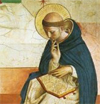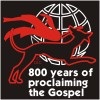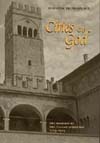| Books by Augustine Thompson, OP | |
This is a book about the religious life of ordinary laypeople in high medieval Italy. As such, it is an excursion into a mostly uncharted world, the lived experience of orthodox religion in the Italian cities. Some readers might find this characterization surprising, even shocking. Nothing could be better known than what it meant to be “Catholic” Christians in the Italy of Saint Francis and Dante. So historians of medieval religion have directed their gaze and research elsewhere. During my first venture into the world of thirteenth-century Italian religion, more than fifteen years ago, I was surprised to discover how little the day-to-day orthodox world had been studied. Older scholarship produced studies of papal politics and scholastic theology, but these treated only an ecclesiastical elite. In his classic study of medieval religious movements, Herbert Grundmann first suggested that high medieval heresy, the mendicants, and women’s mysticism all formed part of a single whole and deserved more attention. Subsequent scholarship focused, almost exclusively, on those three phenomena. A glance at the treatment of medieval religion in the Einaudi handbook of Italian history, itself the work of an eminent scholar, shows an odd religious landscape. Traditional scholarly divisions rule: a section on the Gregorian Reform is followed by sections dedicated to heresy and repression (pp. 609–733), the mendicant orders (pp. 734–874), and the Church’s institutional crises of the 1300s (pp. 874–974). Heretics, popes, theologians, Franciscans, and saints. Where is everyone else? |
ISBN: 9780271029092 |




 Cities of God: The Religion of the Italian Communes, 1125-1325
Cities of God: The Religion of the Italian Communes, 1125-1325